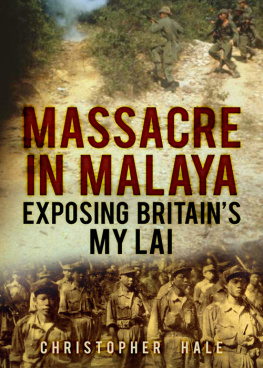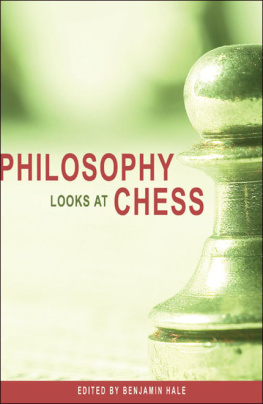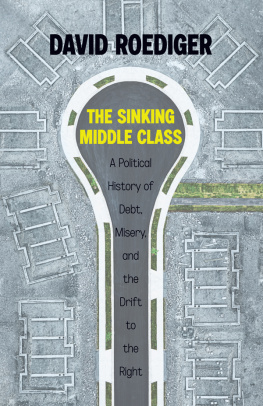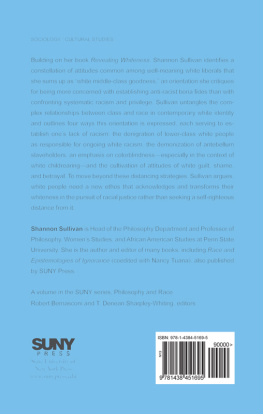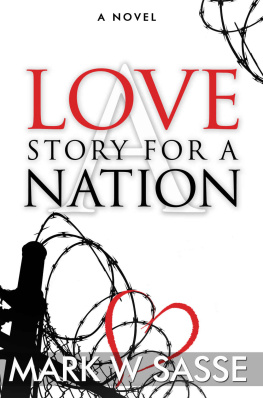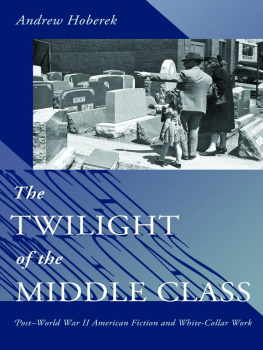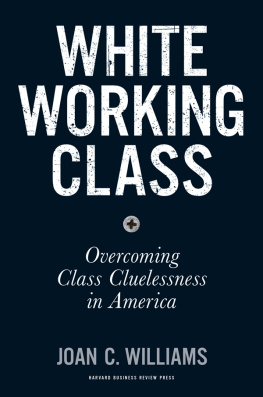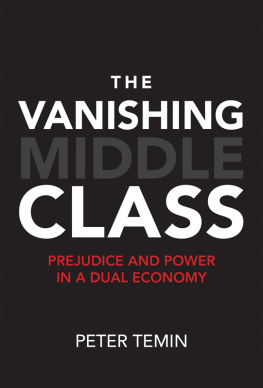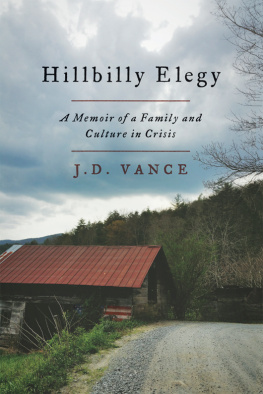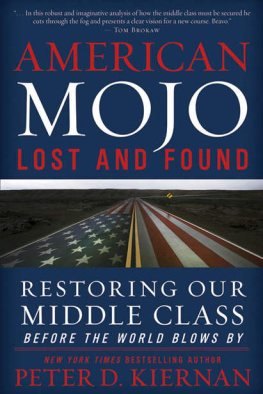Hale - A nation of outsiders: how the white middle class fell in love with rebellion in postwar America
Here you can read online Hale - A nation of outsiders: how the white middle class fell in love with rebellion in postwar America full text of the book (entire story) in english for free. Download pdf and epub, get meaning, cover and reviews about this ebook. City: USA, year: 2014;2011, publisher: Oxford University Press, genre: Politics. Description of the work, (preface) as well as reviews are available. Best literature library LitArk.com created for fans of good reading and offers a wide selection of genres:
Romance novel
Science fiction
Adventure
Detective
Science
History
Home and family
Prose
Art
Politics
Computer
Non-fiction
Religion
Business
Children
Humor
Choose a favorite category and find really read worthwhile books. Enjoy immersion in the world of imagination, feel the emotions of the characters or learn something new for yourself, make an fascinating discovery.

- Book:A nation of outsiders: how the white middle class fell in love with rebellion in postwar America
- Author:
- Publisher:Oxford University Press
- Genre:
- Year:2014;2011
- City:USA
- Rating:3 / 5
- Favourites:Add to favourites
- Your mark:
- 60
- 1
- 2
- 3
- 4
- 5
A nation of outsiders: how the white middle class fell in love with rebellion in postwar America: summary, description and annotation
We offer to read an annotation, description, summary or preface (depends on what the author of the book "A nation of outsiders: how the white middle class fell in love with rebellion in postwar America" wrote himself). If you haven't found the necessary information about the book — write in the comments, we will try to find it.
Hale: author's other books
Who wrote A nation of outsiders: how the white middle class fell in love with rebellion in postwar America? Find out the surname, the name of the author of the book and a list of all author's works by series.
A nation of outsiders: how the white middle class fell in love with rebellion in postwar America — read online for free the complete book (whole text) full work
Below is the text of the book, divided by pages. System saving the place of the last page read, allows you to conveniently read the book "A nation of outsiders: how the white middle class fell in love with rebellion in postwar America" online for free, without having to search again every time where you left off. Put a bookmark, and you can go to the page where you finished reading at any time.
Font size:
Interval:
Bookmark:
A Nation of Outsiders
How the White Middle Class Fell in Love
with Rebellion in Postwar America
GRACE ELIZABETH HALE

2011

Oxford University Press, Inc., publishes works that further
Oxford Universitys objective of excellence
in research, scholarship, and education.
Oxford New York
Auckland Cape Town Dares Salaam Hong Kong Karachi
Kuala Lumpur Madrid Melbourne Mexico City Nairobi
New Delhi Shanghai Taipei Toronto
With offices in
Argentina Austria Brazil Chile Czech Republic France Greece
Guatemala Hungary Italy Japan Poland Portugal Singapore
South Korea Switzerland Thailand Turkey Ukraine Vietnam
Copyright 2011 by Grace Elizabeth Hale
Published by Oxford University Press, Inc.
198 Madison Avenue, New York, NY 10016
www.oup.com
Oxford is a registered trademark of Oxford University Press
All rights reserved. No part of this publication may be reproduced, stored in a retrieval system, or transmitted, in any form or by any means, electronic, mechanical, photocopying, recording, or otherwise, without the prior permission of Oxford University Press.
Library of Congress Cataloging-in-Publication Data
Hale, Grace Elizabeth.
A nation of outsiders: how the white middle class fell in love
with rebellion in postwar America / Grace Elizabeth Hale.
p. cm.
Includes bibliographical references and index.
ISBN 978-0-19-539313-2
1. Popular cultureUnited StatesHistory20th century.
2. WhitesUnited StatesSocial conditions20th century.
3. Middle classUnited StatesHistory20th century.
4. DissentersUnited StatesHistory20th century.
5. CountercultureUnited StatesHistory20th century.
6. Social psychologyUnited StatesHistory20th century.
7. United StatesSocial life and customs20th century. I. Title.
E169.12.H338 2011
306.0973dc22 2010018091
9 8 7 6 5 4 3 2 1
Printed in the United States of America
on acid-free paper
For Sarah and Emma,
for always asking questions
For financial support, I am grateful to a number of institutions and programs. The University of Virginias College of Arts and Sciences awarded me multiple summer and other research grants and a sesquicentennial fellowship. Deans Ed Ayers and Meredith Woo, Associate Dean Bruce Holsinger, History Department chairs Chuck McCurdy and Brian Owensby, and American Studies chairs Maurie McInnis and Sandhya Shukla enabled me to take outside fellowships as well as an essential family leave. The National Humanities Center, the Virginia Foundation for the Humanities, and the Institute for Historical Studies at the University of Texas at Austin have all supported various stages of the research for and writing and editing of this book, and all of these institutions are amazing places to work. I want especially to thank Kent Mullikin and Lois Whittington at NHC for bearing with me during a year in which my dad was sick and dying, Ann White Spencer and Roberta Culbertson at VFH for their support and willingness to reschedule my fellowship, Julie Hard-wick and Courtney Meador at the IHS, and Erika Bsumek for helping make Texas home this year. I also received a summer research grant from the Gilder Lehrman Foundation.
Over the last decade, I have presented pieces of this work at Vanderbilt University, the University of CaliforniaSanta Barbara, Emory University, the University of Virginia, New York University, the University of North Carolina Chapel Hill, the University of South Carolina, Rutgers University, Virginia Tech, West Virginia Wesleyan, Purchase CollegeSUNY, the Southern Historical Association, and the American Studies Association. I want to thank all the commentators in these venues for their constructive criticisms. Jeremy Varon deserves a special acknowledgment for making sharp and yet also generous comments at the right moment and helping me to finish.
My agent, Geri Thoma, found a wonderful home for my project. Susan Ferber at Oxford University Press has been the perfect editor, reading every page more than once and pushing me exactly the right amount. I am grateful to both of these amazing women for their hard work on behalf of my book.
For intellectual community at UVA, I thank Brian Balogh, Reginald Butler, Alon Confino, Claudrena Harold, Chuck McCurdy, Tom Klubock, all my wonderful American Studies colleagues, graduate student members of the UVA Southern Seminar over the decade 19972007, and other UVA people thanked elsewhere in this list. Graduate students Scott Matthews and Megan Stubbendeck provided essential research help with this book. Scott and Lisa Goff have been more like colleagues than graduate students in the ways they have challenged my thinking and commented on my work over the years. I am also grateful to the following UVA undergraduate students for inspiring me: Horace Ballard, Veronika Bath, Aaron Carico, Whitney Gruenloh, Emily Hagan, Taylor Harris, Anna Rakes Isley, Erin Levin, Elizabeth Alabama Mills, Molly Minturn, Nora Nunn, Morgan Saxby, Kevin Simowitz, Terri Taylor, Lauren Tilton, Meg Weckstein, Shannon Wendling, Emily Westkaemper, and Ruthie Yow.
The following people have my deep gratitude for their friendship, intellectual generosity, editing help, and unwavering support for this project: Ed Ayers, Peter Dimock, Nelson Lichtenstein, Bryant Simon, and Lauren Winner. The following friends have sustained me and my daughters in ways small and large but always essential: Cindy Aron, Steve Arrata, Majida Bargach, Eileen Boris, Kathryn Burns, Scott Casper, Deborah Cohn, Nancy Corwith, Chad Dodson, Amy Halliday, Paul Halliday, Paul Harvey, Bob Jackson, Cindi Katz, Ann Lane, Eric Lott, Manuel Lerdau, Vicki Olwell, John Pepper, Kamalini Ramdas, Ann Marie Reardon, Elizabeth Thompson, Heather Thompson, David Waldner, Ann Hill Williams, and Lisa Woolfork. For nurturing my daughters through a very difficult time, I am grateful to all the folks at University Montessori School. For friendship, old and rich and deep, I thank Margaret Hall, Jessica Hunt, Eliza McFeely, and Lynn Ponce de Leon. Mandy Hoy has shared great books, long runs, her parenting skills, and her wonderful cooking for years. David Holton helped me discover my love of theater and all things Canadian. For conversations about history, cooking with kids, midnight pharmacy runs, and funerals, I am grateful to Kristin Celello and Carl Bon Tempo. I am indebted to Franny Nudelman for more than a decade of beautiful friendship, shared children, the example of her teaching and writing, and our intellectual collaboration, and to Cori Field for her grace and generosity and for our shared quest to be good historians and parents simultaneously. In the last two years of this book project, Brooke Bostic shared his love, serenity, and sense of adventure, and I am deeply thankful. My gratitude to the amazing group of women who are my Charlottesville family, Lawrie Balfour, Anna Brick-house, Bonnie Gordon, and Liz Witner, is literally immeasurable. Without the running, advice, child care, love and support, intellectual community, and the all-essential book summit, I would never have been able to keep going.
For their support, I am grateful to my family: Joan Berry Hale, Trace Hale, Joanna Hale Prior, Jim Fisher, and Mark Prior. My father, Lester C. Hale, did not live to see this book finished, but he was my rock and remains a model for me in infinite ways. My last debt is to my daughters, Sarah Ellen Innis Hale and Emma Chandler Innis Hale, born just before I started this book, for their bottomless love, their passion for learning, and for teaching me what is important.
Next pageFont size:
Interval:
Bookmark:
Similar books «A nation of outsiders: how the white middle class fell in love with rebellion in postwar America»
Look at similar books to A nation of outsiders: how the white middle class fell in love with rebellion in postwar America. We have selected literature similar in name and meaning in the hope of providing readers with more options to find new, interesting, not yet read works.
Discussion, reviews of the book A nation of outsiders: how the white middle class fell in love with rebellion in postwar America and just readers' own opinions. Leave your comments, write what you think about the work, its meaning or the main characters. Specify what exactly you liked and what you didn't like, and why you think so.




